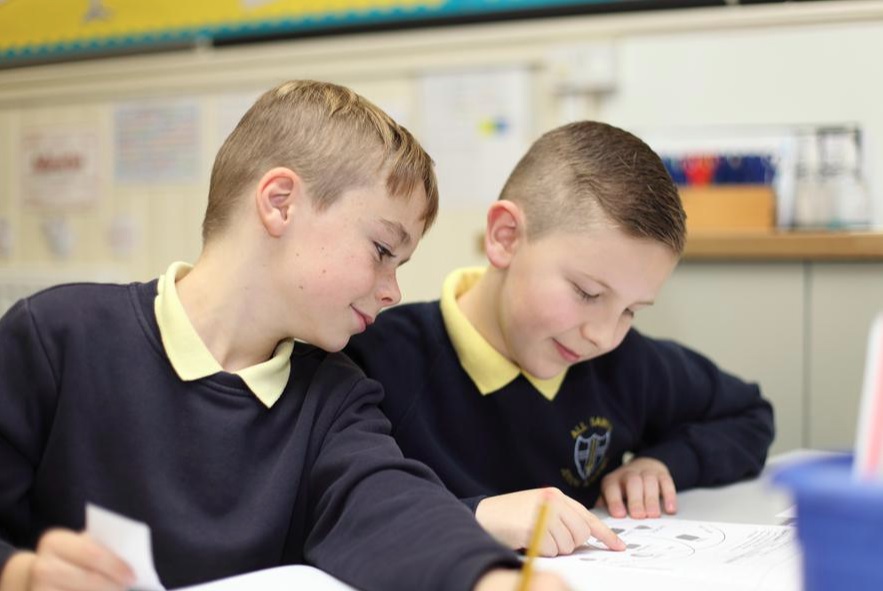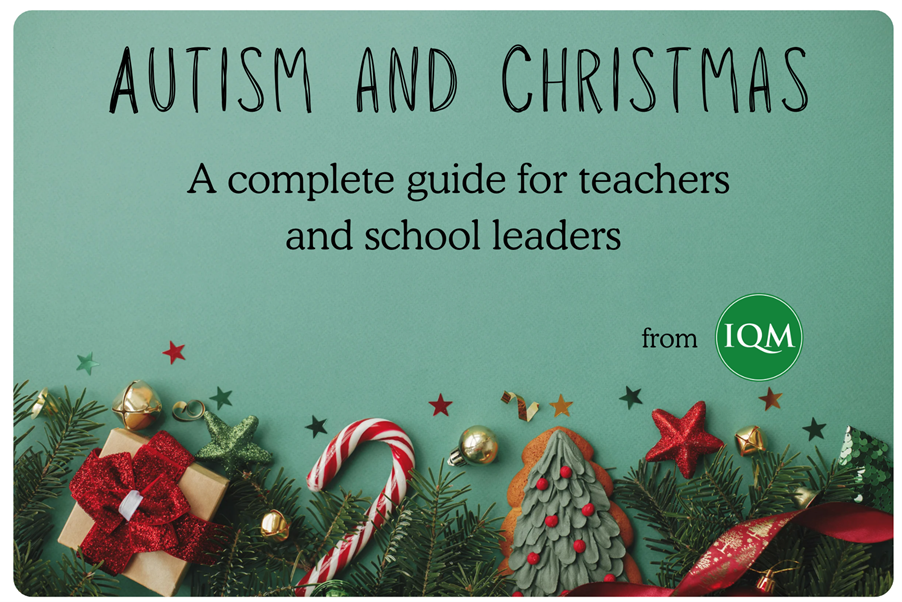Who is IQM?
IQM is the only national inclusion award in the UK. For over 20 years and in over 20 countries, schools, MATs and Local Authorities use the Inclusion Quality Mark to recognise exemplary inclusive practice.
Get in touch for your FREE school information pack today.
All Saints CE Junior School Receives the Inclusive School Award
July 17, 2024

All Saints CE Junior School is one of a family of 22 schools in the Diocese of Chichester Trust which has a mission to ‘Help every child to reach their God-given potential’. Inclusion and individuality underpin a culture of high ambition supported by a consistent approach to strong expectations of pupil behaviour.
The school serves an area of deprivation, the town being the 13th most deprived town in England and a quarter of children are reported to be living in poverty. Whilst this context is considered, it is used as a driver for aspiration and change and not as a reason for low expectations.
The commitment to inclusion in All Saints is not just evidenced in many different ways reaffirming the observations from inspections and visits, but palpable as soon as you walk through the door. In January 2023 Ofsted recognised that, “Pupils thrive in this school. They have positive relationships with staff, who know them well. Pupils are happy and feel safe. They listen carefully to each other and demonstrate positive attitudes towards their learning”. I can confidently say that my visit fully supports this observation.

There is a sense of belonging, cohesion and acceptance wherever you go in the school with all staff, whatever their role, knowing and caring about individual children and their families. The fact that the Site Supervisor was included as part of the staffing group I met with is indicative of how every contribution is valued and respected and it is heartwarming to hear how he says he experiences and sees the values of the school in his day-to-day work differentiating this from other places he has worked in. It feels like walking into the home of an extended and blended family. The infamous Mr Nibbles, the well-loved guinea pig who is an integral part of the Thrive offer even has a place on the staff notice board!
The school assertion is that ‘With God nothing is impossible’ and not only is this highlighted consistently across the school, it was a sentiment shared with me during my tour with representatives of the school Worship Group. Importantly this, interwoven with the five Christian Values of Generosity, Respect, Hope, Resilience and Kindness selected by stakeholders, provides a framework that is applied in an age-appropriate manner with practice in school reflecting these values consistently. The sixth value is annually selected by parents, carers and guardians (the term parent is used hereafter throughout the report), not only demonstrating the importance the school places on this partnership but also of their inclusion in this key aspect of the school ethos. This year this value has been Courage. I heard from pupils how they have been supported to be ‘courageous advocates’ learning to use their voice on a range of important issues through a project that brought to life this value in a meaningful and tangible way creating lifelong skills.
The distributed leadership of inclusion in this school is a distinctive feature and whilst staff hold key responsibilities, the passion for practising good inclusion is seen as a core accountability for everyone working in the school.
I was shown around the playground by students who explained changes that had been made and later observed the impact of the Opal Play. This review of the playground environment has been transformational not only physically but in terms of impact with increased integration with cross-year group friendships being formed through shared interests and activities. The school has committed to using teaching staff rather than midday supervisors who can provide consistency in expectations of behaviour and model how to play. Transitions to classes following lunch have been much less problematic impacting positively on learning positively.
Refreshingly, children are visibly risk assessing for themselves in a safe environment which will have a huge impact beyond school as part of their self-regulation. Those who wish to can also benefit from an indoor area situated in the playground. Others make use of the dance area with music playing.
The Pupil Council had an input also and the equipment now includes a swing as well. However, the most impressive aspect is the range of options available which are not structured. There are dressing-up items and a range of materials suitable for building, den making and imaginative play, items usually eliminated from Junior playgrounds. Gender stereotypes are vastly reduced and there is a growing awareness that expensive bespoke equipment can be creatively limiting as well as unnecessary, a useful realisation in an area of deprivation. There is a hope to share these ideas further with families who are often under pressure to purchase expensive items for home.
The universal understanding of Thrive as a model is a huge strength in the school with staff and pupils alike recognising its value.
This school feels like a safe haven, well run, well supported, nurturing and aspirational. I am sure it will go from strength to strength maintaining its values and preparing young people admirably for their next stage of education and life in general.

Other Posts

About IQM
The only national award for inclusion in the UK, IQM has been committed to recognising exemplary inclusive schools for over 20 years and in over 20 countries around the world. The three awards allow schools and organisations to celebrate their inclusive practice against nationally recognised framework.
Site Links
© 2026 Inclusion Quality Mark | website developed & cared for by digidoda


